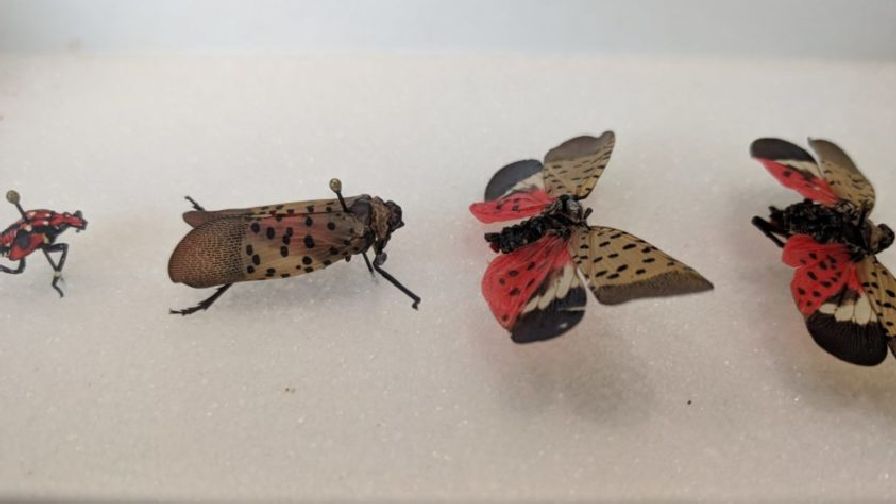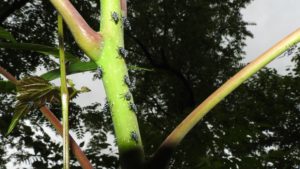Spotted Lanternfly Found in Virginia Grapes

Four stages in the growth of the spotted lanternfly. (Photo: Ruth Tam)
For the first time, spotted lanternfly (SLF), Lycorma delicatula, has been found on a cultivated crop in Virginia. The invasive pest, which was found on a table grape arbor this past weekend by Virginia Tech Entomology Professor Douglas Pfeiffer, was first found in Frederick County in January.
That initial finding, at a stone yard in Frederick County near Winchester, was significant because it was and still is the only breeding population outside of Pennsylvania, where it was first found in 2014, also on building stone.
Pfeiffer said because it is a breeding population, he wasn’t surprised to find SLF nymphs on a wide variety of plants, including wild cherry and grape, honeysuckle, hackberry, smooth sumac, and poison ivy.
“The nymphs are very active, and jump readily when disturbed,” he wrote in his blog. “We found first and second instars — it will be some time before we expect to find the bright red fourth instar nymphs.”

Spotted lanternfly has infested an area near Winchester, VA, including this smooth sumac. (Photo: Doug Pfeiffer, Virginia Tech)
Native to China, India and Vietnam, SLF feeds on more than 70 plants, including grapes, stone fruits, hops, and, by far its favorite, Tree of Heaven.
The insect causes damage to plants because of its method of feeding, the rapid buildup of large populations and the production of honeydew, a byproduct of their feeding activity that serves as a medium for fungal growth. SLF can also be a nuisance pest to homeowners when found in large numbers.
The first U.S. detection of SLF occurred in 2014 at a Pennsylvania business that imports stone products. Stone products from that business went to the Winchester site. Virginia Department of Agriculture and Consumer Services (VDACS) inspectors had been monitoring the Winchester site since 2015, with no positive detections until a routine follow up survey in January. Inspectors then found SLF on Tree of Heaven on the property.
Early detection is vital for the management of any newly introduced plant pest. VDACS has been conducting a survey in the surrounding area in an effort to determine the extent of the infestation. VDACS is also working with Virginia Cooperative Extension and the Pennsylvania Department of Agriculture to determine management and control strategies for SLF.









